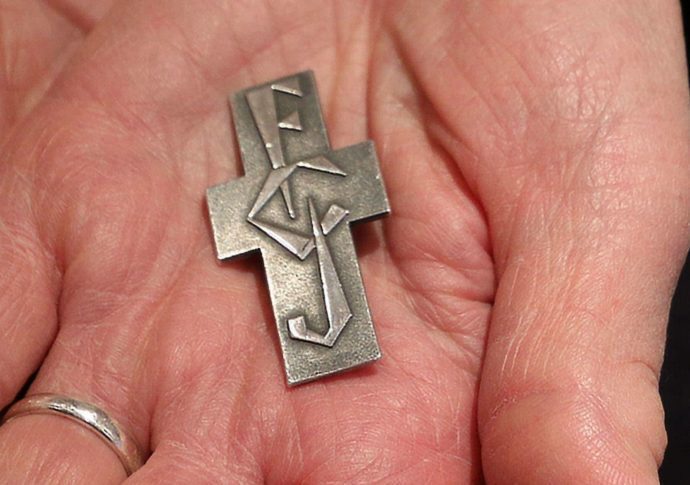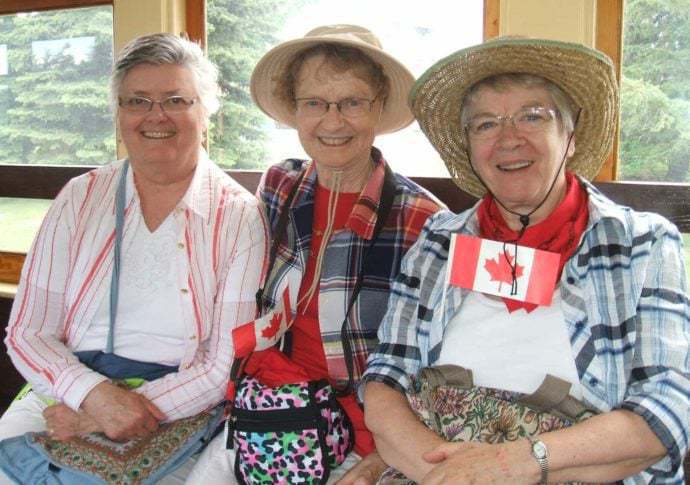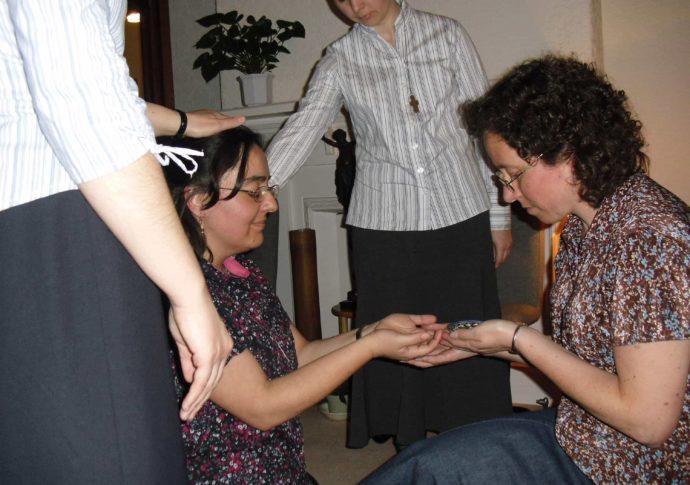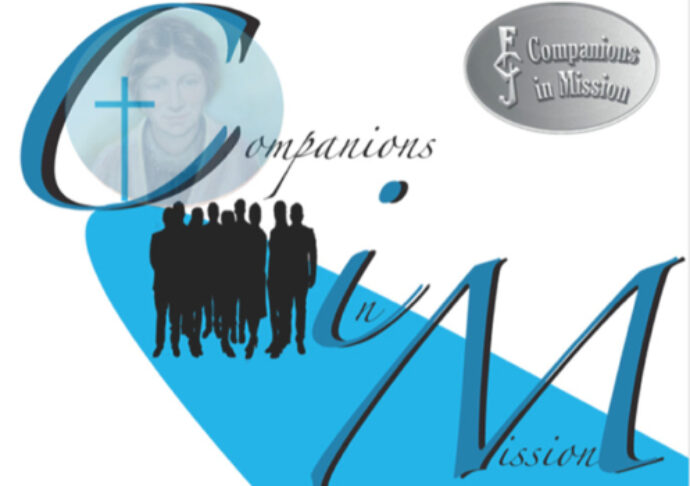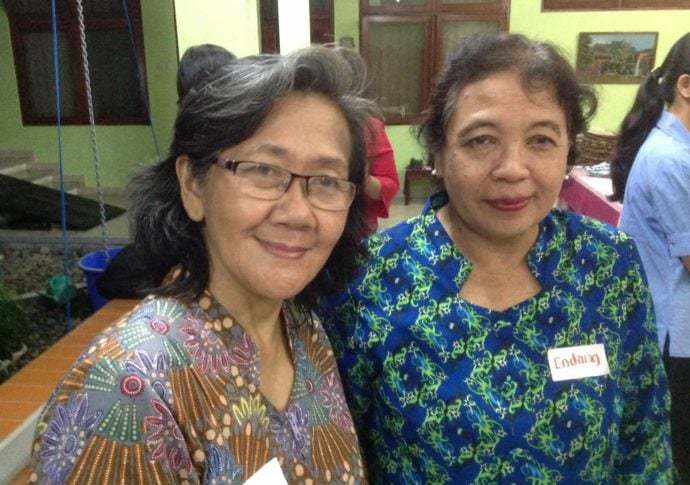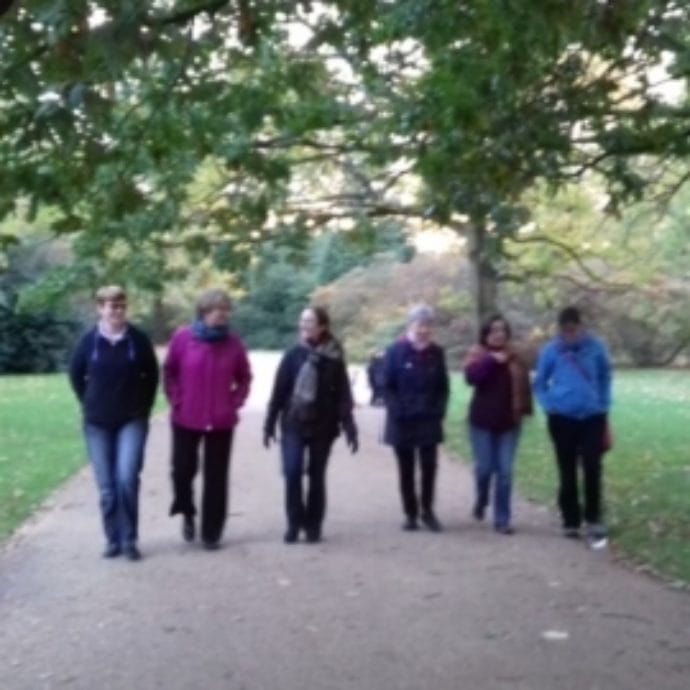It was with sadness that we heard of the death of Francisco Rico, FCJ Companion in Mission from Toronto, long time friend and collaborator of our Sisters there and, most importantly, a tireless advocate for a just and fair immigration system. Francisco leaves a legacy of love and hope, particularly in the FCJ Refugee Centre, which he co-directed for many years with Loly Rico CiM.
Francisco submitted this reflection on Pope Francis recent Encyclical Fratelli Tutti: On Fraternity and Social Friendship on December 2020 and we are republishing now.
When I heard that the new Pope would be called Francis I felt fully identified with him, and happy… even more so, when I learned that he chose the name for Francis of Assisi. Francis (Francisco in Spanish) is the name my mother and father gave me; may they rest in peace. They would surely be delighted that I, the dreamer, the restless one, share this name with the first non-European Pope. But my joy and my identification with Pope Francis doesn’t end here. Now that I have read his last encyclical and see vindicated in these writings all the principles that have guided my life, the life of popular movements,… the principles for which so many companions were massacred or assassinated… now alive in the encyclical and in each one of us who have continued to struggle and be faithful to this way of life.
It was a great joy to read in the encyclical these same principles which were transmitted directly to us by our parents, by our neighbours, and in my personal life, by the martyrs of the Church whom I knew in El Salvador. These contemporary martyr-saints died for their fidelity to the same principles expressed by our Holy Father. These are the principles which ruled my faith project, my professional trajectory of service to the ‚other‘ (understood as our brother/sister, migrant, the stranger, those who knock on our door, our brother Jesus asking for water, food, lodging). Thank you, Holy Father, for this pat on the back; thank you for recognizing the labour of centuries of those of us who work to achieve unconditional love and inalienable human dignity, for creating ’space‘ for those whose voice is never heard. In other words, it was a beautiful experience to feel, for the first time in my life, fully represented and vindicated in an encyclical. This is not arrogance. It is a way to recognize the interpretation of our Holy Father of popular wisdom. It isn’t necessary to reinvent the wheel but rather, return to our roots.

It is impossible to summarize the encyclical in two pages, but, as my grandmother said, ‚it is possible to show a button! I will take as examples those closer to my life, and I invite you to also chose the ‚buttons‘ with which you most identify, and to write, as I am doing, without fear of being rebuked by the Nuncio or the hierarchy of the Church. Let’s begin.
When hate governs, injustice flourishes and we run the worst risk – that of not loving. To live without fraternity, without equality, without solidarity, or what is worse yet, to confuse love, solidarity, fraternity with love of oneself (which generates a preference for those who are most like myself). Therefore, I see this encyclical as alerting us to the Sodom and Gomorrah that we have created, and as guiding us towards a love, hope and solidarity written in this historic moment of great transcendence in the construction of the hope of humanity. It is a way towards equality, equity and universal human dignity.
The encyclical is a call to NOT sit down and rest on the side of the road! It says to us: ‚the good, also the love, justice and solidarity, are not achieved once and for all, but rather have to be conquered each day.‘ We are call to NOT be content with what we have already achieved, because the unequal development between human beings, between families, between cities and regions, is such that many ’neighbours‘ live in situations of calamity, are in need of goodness and justice (which perhaps we have achieved for ourselves, but which they have yet to achieve.) These are the ’neighbours‘ who need unconditional love, and solidarity to survive crises. While one human being does not yet enjoy the plenitude of human dignity inherent in the human condition, no one can fully enjoy the dignity which they believe to have achieved for themselves.
The encyclical reminds us of history; it says to us that we are forgetting the lessons of history ‚life’s teacher‘. As we learn in popular movements, it is not the case of contemplating history, memorizing the names of the people chosen by the official system to hide the cruel reality, but rather, to learn the lessons from the people’s defeats, repeat the names of the martyrs and vindicate their struggles… the same struggles that we continue to wage against the ’new poverties‘, against the new forms of oppression which continue to materialize… the injustice against our global neighbour. It is necessary to vindicate the right of all people to NOT migrate, yes, this buried right, forgotten in the ’new history‘ of our countries, which see in the migrant one mouth less to feed in the country of origin, one tortilla more for those who remain. We know that the internet does not present history, but rather manipulated information. This internet information will never replace the wisdom of our grandparents, which comes from the daily confrontation with reality. History and wisdom are not constructed watching a smartphone in our bedroom. History and wisdom are gathered in each human relation, without intermediaries.
Speaking of history and popular wisdom, I remember how my parents taught us that there is no home without hospitality… that we open the door of our home to share what we have, not what is left over, and that the important ones are not those who open the door, but those who are guests. This was so logical for me that when I read of hospitality in the encyclical, I was reminded of Bishop (Saint) Romero when he opened the door of the cathedral in San Salvador to give refuge to campesinos and others who were fleeing repression. Now I read about hospitality in the encyclical, written in the same way that it was lived in by the people’s Church during the civil war in El Salvador.
How many times have we heard the parable of the Good Samaritan in my family, in my neighbourhood. I grew up thinking that the Samaritan symbolized charity, service to the neighbour… until one day a Salesian priest corrected me – after giving me a pat on the head as if to say ‚child… don’t be…. You know! The Salesian priest was referring to the Jewish tradition, where the Samaritan is not synonymous with being a good person, but rather as the Jewish tradition where Samaritans were seen with prejudice and considered to be of very low social importance. This important context is currently missing – However this shows the historical humanity of the oppressed. Those who have been marginalized offer sometimes, the most gracious and humble support to others. Our modern-day colloquial understanding of the ‘good Samaritan’ was in fact borne from roots of oppression.
My father said that it is not the Samaritan who caused the wounds, but the wounded one who called forth the response of the Samaritan. The only thing I have to do is to be sensitive to what is before my eyes and respond. Also, popular wisdom reminds us that we all have a glass roof over our heads, and therefore we should help our neighbour because we have all done everything in our lives- we have been wounded, and we have been the bandits who wound. We have ignored the needy. ‚Don’t do to others what you would not have them do to you.‘ Also, we don’t know when we will be like the wounded, or like those who assault. Popular wisdom is vindicated in the encyclical. Years after learning these wise teachings, it was VERY important for me to encounter in the homilies of Bishop Romero the parable of the Good Samaritan as the foundation of our response to the necessities of the people and as a theological basis and defence against the accusations of the world against the social doctrine of the Church. It was important in my consolidation as a person. Now 40 years later, to come across the same in this encyclical is simply marvellous!
Thank you, Pope Francis, for reminding us of the Christian tradition which never recognized as absolute or untouchable the right to private property. I see this as a subtle invitation to take down the wire fencing… that the earth is ours, is yours, is Pedro and Maria’s, is Juan and Jose’s, as the song goes. Popular movements of the taking of land don’t forget the principle of the ‚common use of goods created for all‘. The right to private property is a secondary right imposed by the privileged who are destroying the common use of goods as they are also destroying community, communion, and basing their lives in individualism. As you so well express it, Holy Father, the only hope for this world is to return to the common use of the goods created for all. Perhaps you, Holy Father, are being accused, as we have been accused, of being subversive. I have always lifted my head when called ’subversive‘, because it implies – subvert the status quo-in-decomposition. As you say, that only alternative is to struggle and work to construct a hope based in the common use of the goods created for all. The capitalist system does not give us this hope.
I could write much more about the encyclical, but my grandmother said, to show a ‚button‘! Here I have touched several ‚buttons‘, those which affected me most deeply, those which were closest to my personal history. Now I would like to conclude by saying that I would have very much appreciated if the encyclical had taken up the topic (and not only superficially mentioning it in one paragraph) the fact that those women are doubly poor who suffer situations of abuse, mistreatment and violence.
It is my opinion that women, teenage and little girls merit an entire encyclical, detailing the role of society and Church in the creation of these ‚double poverties‘ which have faced women and have been confronted by them since the beginning of time.
This is an historic debt, Pope Francis, that should be paid as soon as possible. One way is to give priority!
Translated by Paula fcJ. Spanish original available here.






